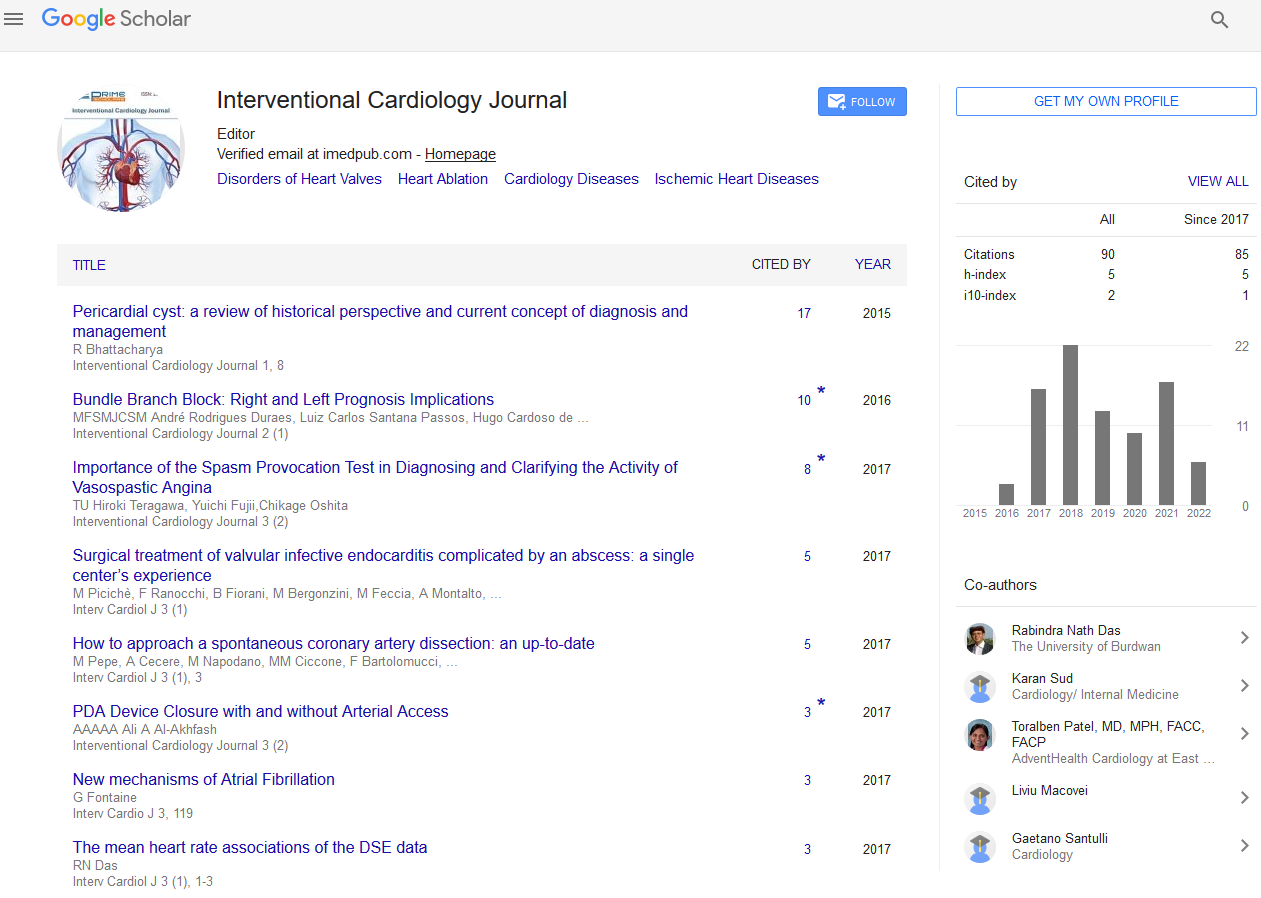Commentary - (2023) Volume 9, Issue 11
The Unseen Effects of High Blood Pressure: How to Protect Yourself
Yang Jun*
Department of Neurology, Chongqing Medical University, China
*Correspondence:
Yang Jun,
Department of Neurology, Chongqing Medical University,
China,
Email:
Received: 30-Oct-2023, Manuscript No. IPIC-23-18480;
Editor assigned: 01-Nov-2023, Pre QC No. IPIC-23-18480 (PQ);
Reviewed: 15-Nov-2023, QC No. IPIC-23-18480;
Revised: 20-Nov-2023, Manuscript No. IPIC-23-18480 (R);
Published:
27-Nov-2023, DOI: 10.21767/2471-8157.9.11.104
Description
Uncontrolled high blood pressure can have significant and
far-reaching effects on an individual's health. It is often referred
to as the "silent killer" because it can cause damage to
multiple organ systems without producing noticeable symptoms.
Hypertension is a major risk factor for heart disease, including
coronary artery disease, heart attacks, and heart failure.
High blood pressure can lead to the formation of blood
clots or weak blood vessels in the brain, increasing the risk of
stroke. Hypertension can damage the blood vessels in the kidneys,
potentially leading to chronic kidney disease and kidney
failure. Hypertension can damage blood vessels in the eyes, increasing
the risk of vision loss. Narrowed and blocked arteries
can reduce blood flow to the limbs, leading to peripheral artery
disease and potential amputations. Uncontrolled hypertension
is associated with an increased risk of cognitive impairment
and dementia. Persistent high blood pressure can weaken
blood vessel walls, increasing the risk of aneurysms (bulging
and potentially ruptured blood vessels). Hypertension can lead
to erectile dysfunction in men and decreased sexual desire in
both men and women. Low blood pressure, or hypotension,
is less common than high blood pressure and can be caused
by various factors. Insufficient fluid intake or excessive loss of
fluids through vomiting, diarrhea, or sweating can lead to low
blood pressure. Some medications, such as antihypertensive,
diuretics, and certain antidepressants, can cause low blood
pressure as a side effect. Conditions like bradycardia (slow
heart rate), heart valve disease, and heart attack can reduce
cardiac output and lower blood pressure. Disorders of the autonomic
nervous system, such as Parkinson's disease or multiple
system atrophy, can lead to orthostatic hypotension (a drop
in blood pressure upon standing). Conditions like Addison's
disease, diabetes, and thyroid problems can cause low blood
pressure. Severe allergic reactions (anaphylaxis) can result in
a sudden drop in blood pressure. Bloodstream infections (sepsis)
can cause a drop in blood pressure. Low blood pressure is
common in early pregnancy but usually resolves by the second
trimester. While low blood pressure is generally less common
and less well-known than high blood pressure, it can also lead
to health problems and complications. Low blood pressure
can cause dizziness, lightheadedness, and fainting, especially
when standing up (orthostatic hypotension). Reduced blood
flow to vital organs can lead to fatigue and weakness. Insufficient
blood flow to the brain can impair cognitive function. Low
blood pressure can reduce blood flow to the kidneys, potentially
leading to kidney dysfunction. Reduced blood flow to the
heart can cause chest pain or angina. In severe cases, hypotension
can lead to shock, a life-threatening condition that results
in inadequate blood supply to vital organs. Diagnosing high and
low blood pressure involves several steps, including a medical
history, physical examination, and specific diagnostic tests.
The healthcare provider will ask about symptoms, risk factors,
family history, and lifestyle habits that may contribute to blood
pressure issues. A physical examination may reveal signs of high
or low blood pressure, such as irregular heart sounds, changes
in pulse, or neurological symptoms. Accurate blood pressure
measurements are key to diagnosis. Multiple readings taken
over time are typically used to establish a diagnosis and assess
the severity. In cases of suspected secondary causes of blood
pressure issues, further tests may be conducted, such as blood
tests, imaging studies, and cardiac evaluations.
Acknowledgement
None.
Conflict Of Interest
The author’s declared that they have no conflict of interest.
Citation: Jun Y (2023) The Unseen Effects of High Blood Pressure: How to Protect Yourself. Interv Cardiol J. 9:104.
Copyright: © 2023 Jun Y. This is an open-access article distributed under the terms of the Creative Commons Attribution License, which permits unrestricted use, distribution, and reproduction in any medium, provided the original author and source are credited.

